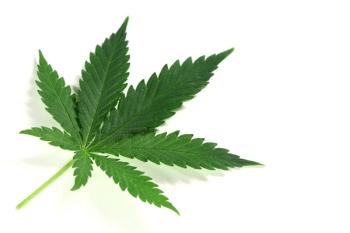
Cannabis Science Conference Spring Coverage: Proficiency Test Program Expands to Oil Matrix to Provide Additional Performance Assessment for Hemp and Cannabis Testing Laboratories
During the Cannabis Science Conference Poster Session, Danielle Lenoir, program manager of Signature Science Quality Assurance Laboratory, explained how there is a gap in proficiency testing for cannabis and hemp regarding oil matrices and what is being done to bridge that gap.
How did you become involved in the cannabis industry?
Danielle Lenoir: Great question. So, Signature Science is a scientific consulting and services company. We commonly help our government contractors or clients look for really custom or tailored solutions, specifically in quality assurance for the section I'm in and that's for proficiency testing samples. So, we saw in cannabis, that there really was a gap there. Where there wasn't necessarily maybe representative option for the labs to test, and also that it might be negatively affecting public health because the consumer needs to see what's actually in their product. So, we really wanted to design a proficiency test to make sure those labs are in compliance, and that it's truly representative of what those labs are seeing every single day.
Tell us about the research presented here.
Lenoir: The AOAC programs started with hemp and cannabis flower proficiency testing, and that has been really successful. And so now we wanted to move into derivative products, which included oils, maybe tinctures or these samples that are in carrier oils. So, we created a pilot test. We had about 20 laboratories participate. And they kind of gave us feedback on how they would like the samples designed and what the results would be. This is just summarizing, kind of what we saw as the proficiency test provider. So that homogeneity and stability result, and then also what some of the participant data was, and how if we could identify some trends in the industry. Maybe there's a particular compound that's difficult for labs, or maybe everybody is skewed really high for moisture testing. There are different trends that we could pick up just by compiling the data looking at it statistically. This is kind of just a summary of that.
In this interview with Cannabis Science and Technology, Danielle Lenoir, program manager of Signature Science Quality Assurance Laboratory, discusses the research of her poster presentation which detailed the most recent addition to the suite of chemical proficiency test offerings in the AOAC Cannabis and Hemp Proficiency Test Program.
Newsletter
Unlock the latest breakthroughs in cannabis science—subscribe now to get expert insights, research, and industry updates delivered to your inbox.




